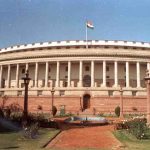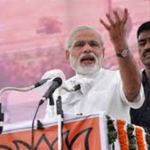The governor is the chief executive head of the state.
Article 153 of the Constitution of India requires a governor to be appointed for every state in India.
He also acts as an agent of the central government.
The state executive consists of the governor, the chief minister, the council of ministers and the advocate general of the state.
APPOINTMENT OF GOVERNOR:
The governor is neither directly elected by the people or indirectly elected, but he is appointed by the president by warrant under his hand and seal.
The Canadian model was accepted in the Constituent Assembly.
The Constitution lays down only two qualifications for a person to be appointed as the governor of a state. These are:
- He should be a citizen of India.
- He should have completed the age of 35 years.
Additionally, two conventions have been made in this regard.
- He should be an outsider. (He should not belong to the state where he is appointed.)
2. While appointing the governor, the president is required to consult the chief
minister of the state concerned.
How does the monsoon affect the economy?
CONDITION OF OFFICE OF GOVERNOR:
The Constitution lays down some of following conditions :
- He should not be a member of either House of Parliament or a House of the state legislature.
- He should not hold any other office of profit.
- He is entitled without payment of rent to the use of his official residence.
- He is entitled to such emoluments, allowances, and privileges as may be determined by
Parliament. - When the same person is appointed as the governor of two or more states, the emoluments and allowances payable to him are shared by the states in such proportion as determined by the president.
TENURE OF GOVERNOR:
a) The Governor holds office for a term of 5 years from the date on which he enters in his office.
b)The “doctrine of pleasure” has always been used to drop governors at any time and thus, Governors have no security of tenure.
c) A Governor is eligible for reappointment.
POWERS OF A GOVERNOR:
A governor possesses executive, legislative, financial and judicial powers more or less analogous to the President of India. However, he has no diplomatic, military or emergency powers like the president.
EXECUTIVE POWERS:-
Article 154 of the Constitution provides that the executive power of the state is vested on the Governor.
- All executive actions of the state government are taken in the name of the Governor.
- He appoints Chief Minister and other Ministers (Article 164).
- He appoints Advocate General of state, State Election Commissioners and chairman and members of state public service commission.
- He also contributes to the appointment of judges of the High Court.
- He recommends imposition of constitutional emergency in the state.
- He appoints Tribal Welfare minister in Chhattisgarh, Madhya Pradesh, Jharkhand, and Odisha.
Pradhan Mantri Fasal Bima Yojana (PMFBY)
LEGISLATIVE POWERS:-
- He can prorogue or summon the state legislative assembly and can also dissolve the same.
- He nominates 1/6thmember of the state legislative council and can nominate 1 member to state legislative assembly of Anglo-Indian community.
- When a Bill is sent to the governor he can exercise three options: give assent to the bill; or withhold the assent to the bill, or return the bill for reconsideration, or reserve the bill for the consideration of the president.
- He can promulgate an ordinance.
- He lays the report of State Finance Commission, Comptroller and Auditor-General relating to the account of the state and the State Public Service Commission in the state legislative assembly.
FINANCIAL POWERS:-
- A Money Bill can be introduced only after his prior recommendation.
- He ensures that the state budget is laid before the state legislature.
- Demand for grants can be made only after his recommendation.
- He looks into the financial position of panchayats and municipalities.
JUDICIAL POWERS:-
- The Governor can grant pardon, reprieve, respite and remission of punishment or suspend, remit and commute the sentence of any person convicted of an offense to which executive power of the state extends.
- Appointment of Judges– While appointing the judges of High courts, president consults Governor. He makes appointments of district judges and also looks into their posting and promotions.
ORDINANCE MAKING POWERS:-
a) The Governor can promulgate ordinances during the recess of state legislature.
b) These ordinances will have the same force and effect as a law passed by the state legislature.
c) The ordinance must be regularized by the approval of the state legislature within six weeks of its next session.
DISCRETIONARY POWERS:-
a) Article 163 – There shall be a Council of Ministers headed by the Chief Minister to aid and advise the Governor and the Governor shall exercise his powers according to such advice.
b) There are two types of situations in which the Governor is expected to use his discretion.
(i) Those, which are implied by the nature of Parliamentary democracy and the Constitution.
(ii) Those where the Constitution has expressly imposed special responsibility on the Governor.
SPECIAL RESPONSIBILITIES OF GOVERNOR:
a) 371 (1) –Special responsibility of the Governor of Maharashtra and Gujarat for the establishment of development boards for Vidarbha, Marathwada, Saurashtra, and Kutch, etc.
b) Art. 371A – Special responsibility of the Governor of Nagaland with respect to law and order so long as internal disturbances occur in some area of the state. To establish a regional council for Tuensang district to arrange for an equitable allocation of Money between Tuensang district and the rest of Nagaland.
c) Art. 371 C (1) – Special responsibility of the Governor of Manipur to secure the proper functioning of a committee of the members of the Legislative Assembly consisting of the members representing the hill area.
d) Art. 371F (g) – Special responsibility of the Governor of Sikkim for the peace and for an equitable arrangement for ensuring the advancement of different sections of the population of Sikkim.
e) Art. 371H (a) – Special responsibility of the Governor of Arunachal Pradesh with respect to law and order.
f) The 6th Schedule provides that the Governor of Assam shall determine the amount payable by the state of Assam to the district council as royalty accruing form licenses for minerals.
APPOINTMENTS DONE BY GOVERNOR:
1. Chief Minister and Other Ministers-The Chief Ministers are appointed by the Governor and other ministers in the state are appointed by him on the advice of Chief Minister.
2. Chairman and members of SPSC- Governor also appoints the chairman and other members of State Public Service Commissions. However, removal of chairman and members of SPSCs can be done only by President.
3. Advocate General-He is the highest law officer of the state. He is appointed by the governor. Advocate general has no fixed tenure and holds the office during the pleasure of the Governor.
4. State Election Commissioner-He appoints the state election commissioner and determines the conditions of service and tenure of the later.
5. Vice-chancellors- He is the Chancellor of universities in the state and he appoints vice-chancellors in various universities.
6. District Judges- Appointments of persons to be, and the posting and promotion of, district judges in any State is done by Governor of the State in consultation with the High Court of that State.
COMPARISON OF THE INDIAN PRESIDENT AND GOVERNORS:
|
SIMILARITIES Both have the status of Constitutional Heads. All executive decisions are taken in their name but actual power is exercised by Council of Ministers All bills passed must get their assent before they become an Act. Both of them have the power to promulgate ordinances All Money bills can be introduced only with their prior recommendation. DIFFERENCES A Governor cannot grant pardon to somebody convicted and sentenced to death, although he can commute such sentence. Only the President has the power to pardon someone sentenced to death. The President can nominate two members of Anglo-Indian Community in Lok Sabha, while a Governor can nominate one member of Anglo-Indian Community in State Legislature. The President nominates 12 members in Rajya Sabha. Governor nominates 1/6th members of State Legislative Council wherever bicameral legislatures exist in states. Only the President can declare war or peace. Only the President can pardon a person punished under the Martial law. |











